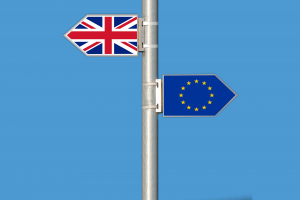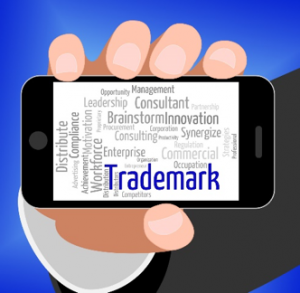UDRP procedure. The bad faith complainant: when the chances of success are so low that the applicant should not have taken action

The Spanish company Scalpers Fashion is active in the fashion industry. It is the owner of numerous trademarks incorporating the “Scalpers” sign, including the European Union trademark “Scalpers” No. 6748578, registered on September 29, 2008. The company has filed a UDRP complaint before the WIPO Arbitration and Mediation Center against the domain name <scalpers.com>, claiming that it infringes its rights. The domain name was registered on September 15, 1997, by the Respondent Dreamissary Hostmaster, who is in fact a natural person, a U.S. citizen and the holder of a substantial number of domain names featuring dictionary words. The domain name at issue was exploited to generate pay-per-click revenues by leading to sponsored links referring to the sale of tickets. At the time the complaint was filed, the domain name in question resolved to a parking page.
The Complainant submits that the Respondent intends to take undue advantage of its reputation in fashion and to disrupt its business. In addition, the Complainant submits that the large sums proposed by the Respondent in various attempts t negotiate are evidence of his bad faith. Indeed, the Respondent allegedly offered initially $150,000 and then $195,000. Finally, the Complainant considers that the Respondent’s bad faith is manifested by the registration of more than 100 domain names, for him to be able to resell them for a profit.
The Respondent contends that he registered and used the domain name <scalpers.com> because of the definition of the word “scalper”: a person who buys tickets at the normal price and then resells them at a high price when demand is high and available seats are scarce. In addition, the latter requires the expert to conclude to reverse domain name hijacking.
The Complainant’s position was not followed by the expert. The expert considers that the domain name was neither registered nor used in bad faith. Indeed, the Respondent had registered the domain name more than 10 years before the Complainant’s alleged date of first use of the “Scalpers” trademark. In such circumstances, there was no basis to conclude that the Respondent targeted the Complainant’s mark, which was not in existence at the time the Respondent registered the disputed domain name. As regards the use of ???, the expert also concluded that there was no bad faith, since the Respondent had used the domain name for the meaning of the word “scalpers”. The expert ruling on the case indicates that the complaint should be dismissed. In addition, he stated that the complaint was filed in bad faith by the Complainant, and was intended to deprive the Respondent of ownership of his domain name. Indeed, several facts contribute to the expert’s position: the domain name was registered by the Respondent long before the Complainant owned a trademark right in the Scalpers sign; the UDRP Complaint was filed after two unsuccessful attempts to purchase the domain name from the Respondent; and the Respondent’s counsel notified the Complainant that the complaint should be withdrawn due to the manifest impossibility of establishing bad faith.
The Complainant clearly should have known that the complaint could not succeed. Thus, it should be borne in mind that the UDRP procedure is not a one-way tool. The aggrieved Respondent may attempt to reverse the proceedings to obtain a decision against the Complainant. Here, the lack of chance of success was particularly blatant, as the domain name predates the trademark rights of Scalpers Fashion.





 Source: E
Source: E
 A number of national top-level domain name registries such as the English registry Nominet have begun to use artificial intelligence to prevent abusive domain name registrations. Each registry uses its own system to suspend registrations if they believe there is suspicious activity on an IP address or if the identity of the applicant cannot be verified.
A number of national top-level domain name registries such as the English registry Nominet have begun to use artificial intelligence to prevent abusive domain name registrations. Each registry uses its own system to suspend registrations if they believe there is suspicious activity on an IP address or if the identity of the applicant cannot be verified.
 The gTLD <.com> apparently occupies more than 40% of the domain name market share, according to statistics provided by the site www.domainnamestat.com. These results confirm that it is an unavoidable extension, especially because the <.com>, which addresses the whole world, is a strong rallying sign.
The gTLD <.com> apparently occupies more than 40% of the domain name market share, according to statistics provided by the site www.domainnamestat.com. These results confirm that it is an unavoidable extension, especially because the <.com>, which addresses the whole world, is a strong rallying sign.
 Domain names appear to be a fertile ground for innovators related to blockchain technology.
Domain names appear to be a fertile ground for innovators related to blockchain technology.
 With the publication of Decree No. 2020-15 adopted for the application of the
With the publication of Decree No. 2020-15 adopted for the application of the 
 The 2019 Finance Act harmonizes French and European tax rules in order to best promote the investment of patentable creations and inventions. We are talking about the French IP Box.
The 2019 Finance Act harmonizes French and European tax rules in order to best promote the investment of patentable creations and inventions. We are talking about the French IP Box.

 As of April 1, 2020, it is now possible to bring actions for cancellation on grounds of invalidity and revocation on grounds of nonuse of trademarks at the French trademark Office –INPI.
As of April 1, 2020, it is now possible to bring actions for cancellation on grounds of invalidity and revocation on grounds of nonuse of trademarks at the French trademark Office –INPI.